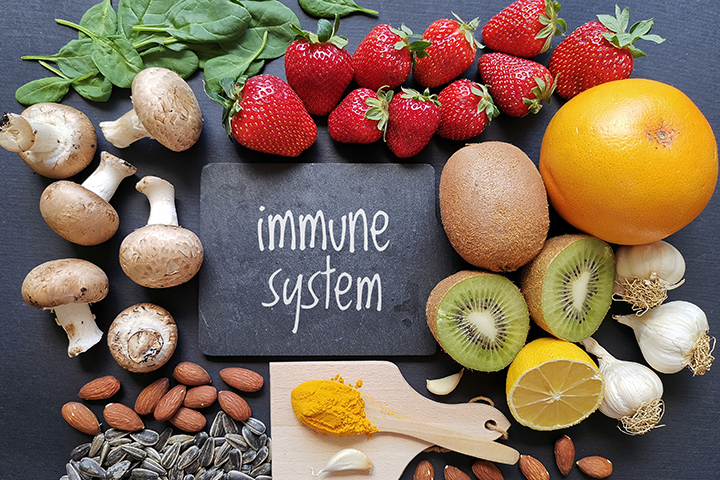In the contemporary landscape, where infectious diseases and pandemics pose ongoing challenges, exploring natural methods for enhancing our immune systems is increasingly vital. For centuries, herbs have improved immunity, and recent studies have validated their effectiveness. Herbs provide a potent means of maintaining our health, from alleviating inflammation to combating pathogens. This article will delve into the leading herbs to boost immunity, highlighting their advantages and methods for utilising them to enhance our defences. Boost your immunity naturally with these simple tips and effective herbs!
How Herbs Help to Boost Immunity?
Herbs can enhance immunity in various ways:
- Antioxidant attributes: Turmeric, ginger, and echinacea possess high levels of antioxidants, which assist in neutralising free radicals and diminishing oxidative stress.
- Anti-inflammatory traits: Ashwagandha, ginseng, and licorice root have anti-inflammatory properties that reduce inflammation, which can compromise the immune system.
- Stimulation of the immune system: Echinacea, goldenseal, and yarrow encourage the immune system, heightening its response to pathogens.
- Combatting pathogens: Garlic, onion, and horseradish possess antimicrobial properties, which help fight off bacteria, viruses, and fungi.
- Stress alleviation: Ashwagandha, passionflower, and kava lessen stress, which can suppress the immune system.
- Nutrient enhancement: Ginseng, astragalus, and Schisandra boost nutrient absorption, promoting immune function.
- Support for gut health: Slippery elm, marshmallow root, and licorice root promote gut health, where a significant portion of the immune system resides.
- Antiviral properties: Elderberry, peppermint, and sage have antiviral properties, aiding the battle against viral infections.
- Support for immune cell function: Reishi mushroom, chaga mushroom, and cordyceps bolster immune cell function and growth.
- Hormone regulation: Ashwagandha, ginseng, and licorice root aid in hormone regulation, which is vital for immune function.
How to Boost Immunity Naturally
- Get enough sleep: Aim to get 7-9 hours of sleep each night to support your immune system.
- Exercise regularly: Engage in moderate-intensity physical activity, such as brisk walking, cycling, or swimming, for at least 30 minutes daily.
- Eat a balanced diet: Emphasize whole, unprocessed foods, including fruits, vegetables, whole grains, lean proteins, and healthy fats.
- Stay hydrated: Drink at least 8 cups (64 ounces) of water daily.
- Manage stress: Use stress-reduction techniques like meditation, deep breathing, or yoga to help manage stress and maintain a balanced immune system.
- Get enough vitamin D: Ensure you get enough vitamin D by spending time outdoors, taking supplements, or consuming vitamin D-rich foods like fatty fish, egg yolks, and fortified dairy products.
- Incorporate immune-boosting herbs: Integrate immune-boosting herbs like echinacea, ginseng, ashwagandha, and elderberry into your diet or supplement routine.
- Practice good hygiene: Maintain good hygiene practices, including frequent handwashing, refraining from touching your face, and avoiding close contact with sick individuals.
- Get enough probiotics: Consume probiotic-rich foods like yoghurt, kefir, kimchi, and sauerkraut, or consider a probiotic supplement.
- Limit processed foods and sugar: Reduce or eliminate the consumption of processed foods, sugary snacks, and refined carbohydrates, as these can compromise your immune system.
10 Best Herbs to Boost Immunity Naturally
Ginseng
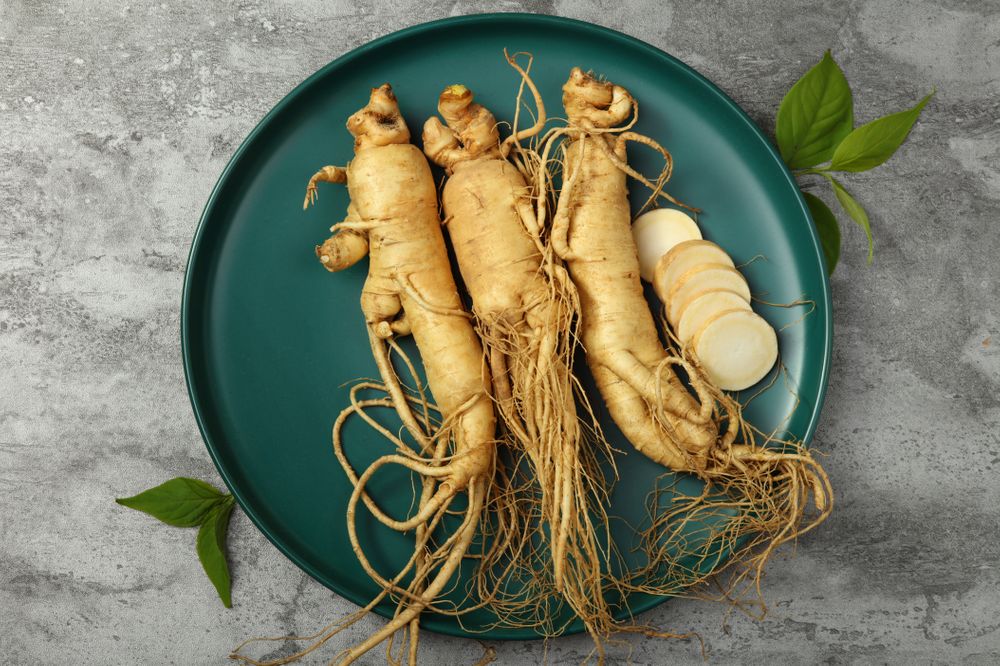
Ginseng is a well-liked plant recognised for its adaptogenic characteristics, which aid the body in adapting to stress and supporting overall health. Here are several benefits and applications of ginseng:
Benefits:
- Enhances cognitive clarity and concentration
- Increases stamina and diminishes tiredness
- Boosts immune system function
- Eases stress and unease
- Enhances sleep quality
- Backs digestive well-being
- It may aid in decreasing blood sugar levels
- It may enhance physical performance
Uses:
– Supplements: Capsules, pills, or powder
– Tea: Soak dried ginseng root in hot water
– Food: Integrate fresh or dried ginseng into dishes
– Topical: Administer ginseng extract to the skin for anti-ageing benefits
Types:
– Asian Ginseng (Panax ginseng)
– American Ginseng (Panax quinquefolius)
– Siberian Ginseng (Eleutherococcus senticosus)
Ashwagandha
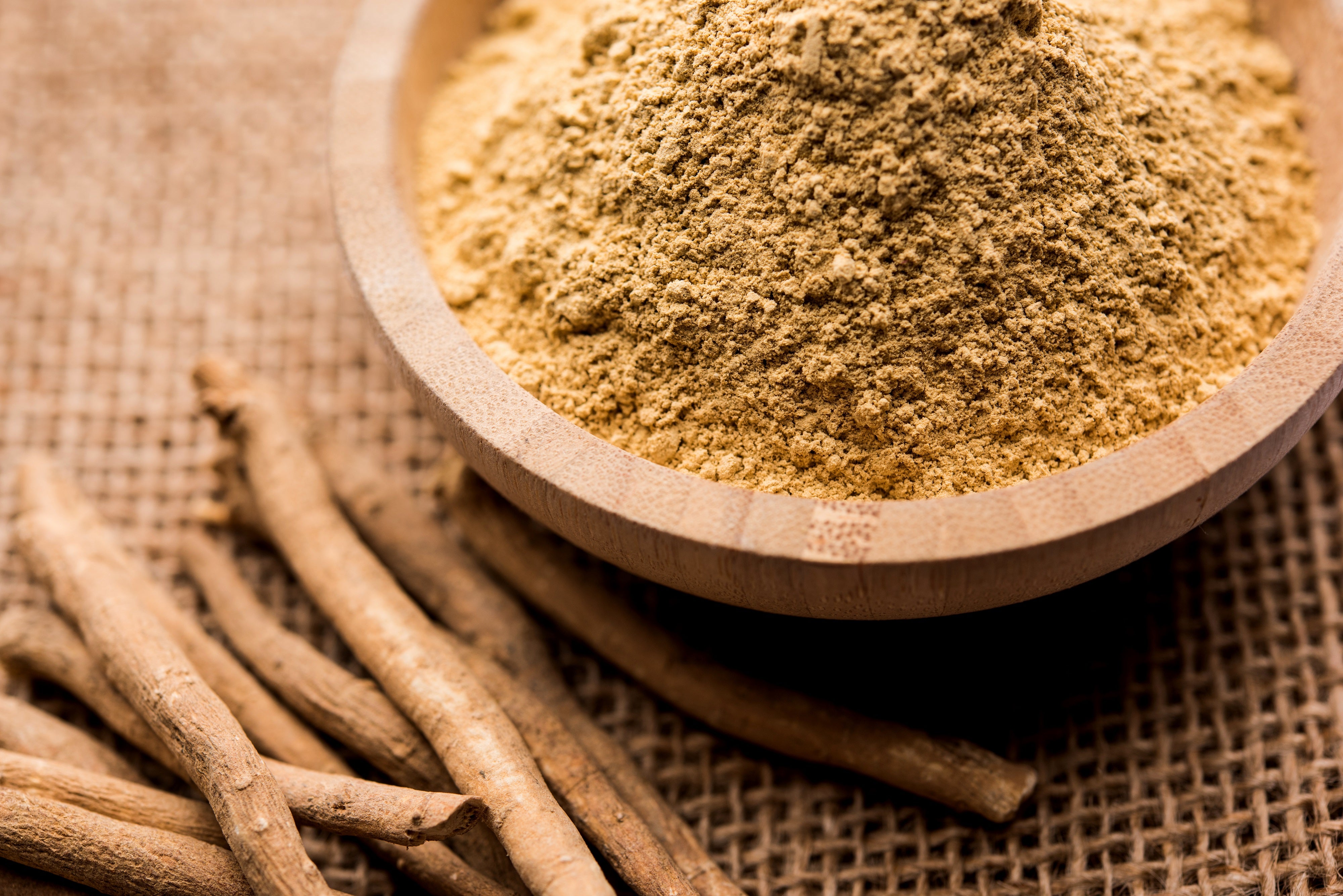
Ashwagandha is an adaptogenic herb that helps the body adapt to stress and promotes overall well-being. Here are some benefits and uses of ashwagandha:
Benefits:
- Alleviates stress and anxiety
- Enhances the quality of sleep
- Increases energy and reduces tiredness
- Improves cognitive function and memory
- Assists immune system function
- Contains antioxidant properties
- Possibly reduces inflammation and enhances joint health
- It may help lower cortisol levels and improve adrenal function
Uses:
– Supplements: Capsules, tablets, or powder
– Tea: Steep dried ashwagandha root in hot water
– Food: Mix ashwagandha powder into meals or smoothies
– Topical: Use ashwagandha oil on the skin for anti-aging benefits
Types:
– Indian Ashwagandha (Withania somnifera)
– African Ashwagandha (Withania africana)
Elderberry
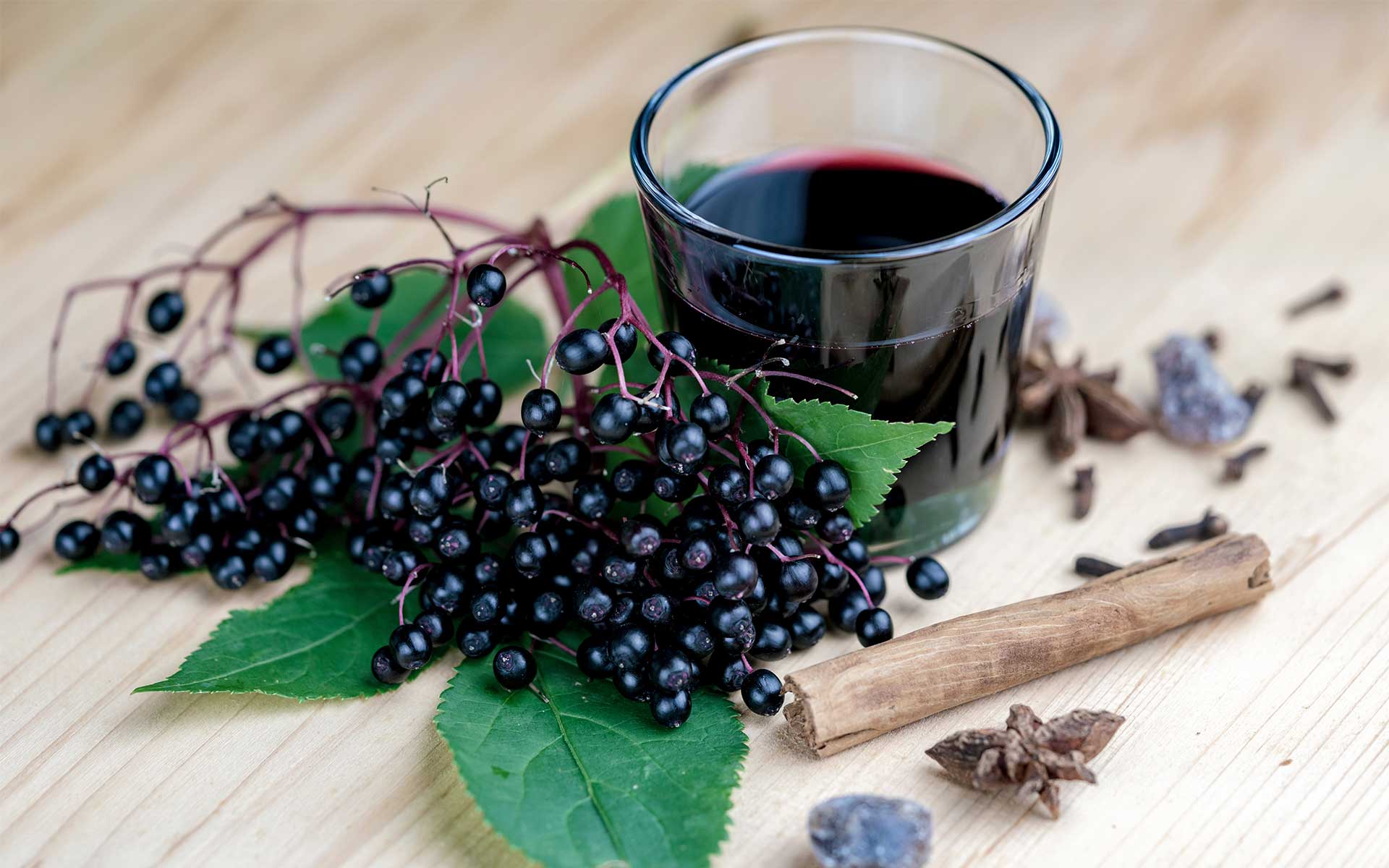
Elderberry has been utilised for centuries as a natural remedy to bolster the immune system and promote overall well-being. Below are some of its benefits and applications.
Benefits:
- Supports the proper functioning of the immune system
- Reduces the severity and duration of colds and flu
- Possesses antiviral, antioxidant, and anti-inflammatory properties
- May aid in reducing sinus pressure and congestion
- May assist in alleviating allergy symptoms
Uses:
– Dietary supplements in the form of capsules, tablets, or powder
– Elderberry syrup, which can be consumed directly or added to food and drinks
– Elderberry tea made by steeping dried elderberry flowers or berries in hot water
– Elderberry used in food such as jam, wine, or cooked dishes
Types:
– Sambucus nigra, also known as European Elderberry
– Sambucus canadensis, also known as American Elderberry
– Sambucus ebulus, also known as Black Elderberry
Garlic

Garlic, an herb derived from plants, has been used for centuries for medicinal and culinary uses. Here are some benefits and applications of garlic:
Benefits:
- Support for the immune system
- Possessing antibacterial, antiviral, and antifungal properties
- Support for cardiovascular health
- Anti-inflammatory properties
- Properties that may help prevent cancer
- Support for digestive health
- Support for respiratory health
- Antioxidant properties
Uses:
– Culinary: Incorporate raw or cooked garlic into meals
– Supplements: Capsules, tablets, or powder
– Tea: Soak crushed garlic in hot water
– Topical: Apply garlic oil to the skin for its antiseptic and antifungal benefits
Types:
– Softneck Garlic (Allium sativum)
– Hardneck Garlic (Allium sativum var. ophioscorodon)
– Silverskin Garlic (Allium sativum var. silverskin)
– Asian Garlic (Allium tuberosum)
Ginger
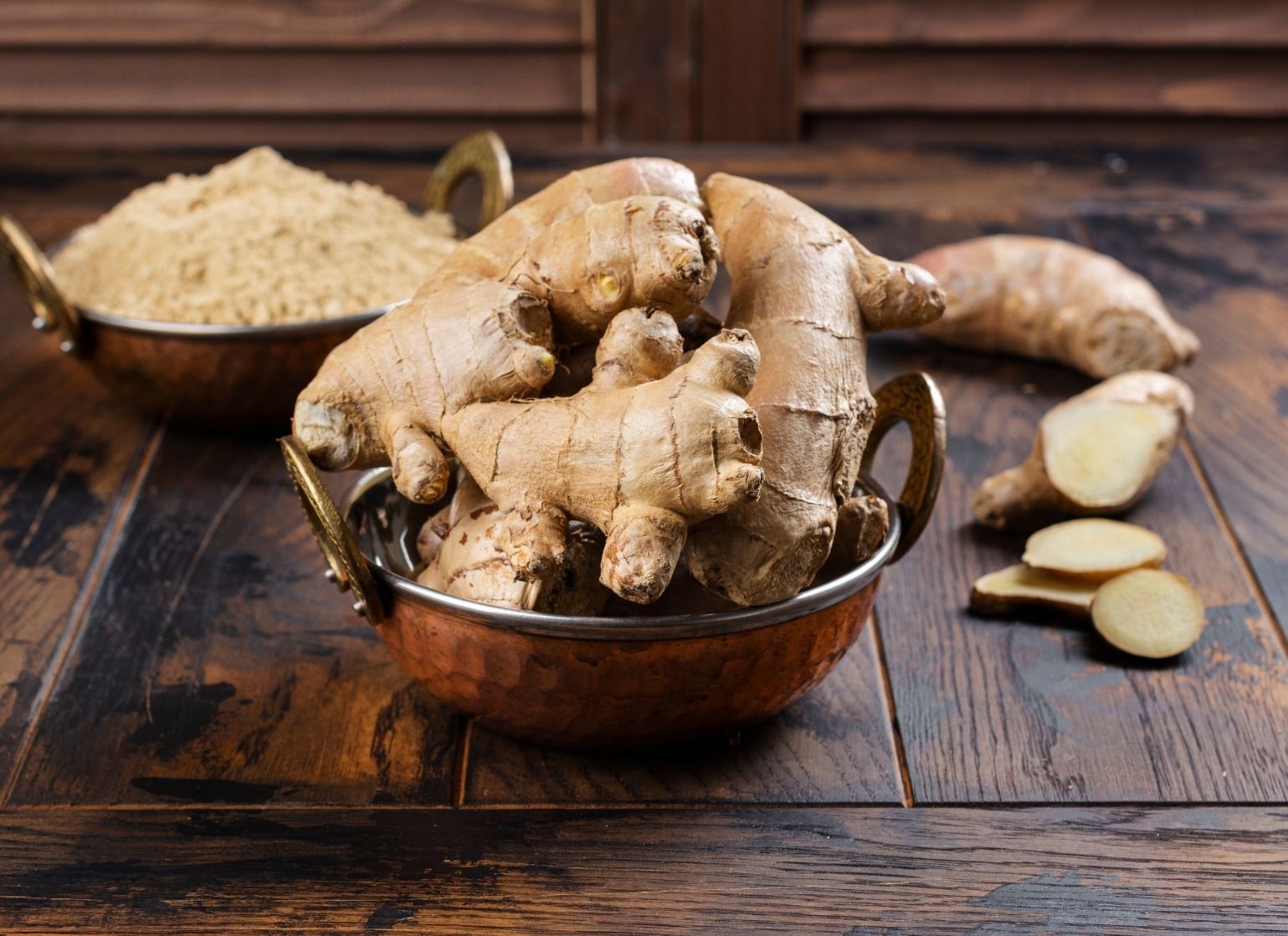
Ginger, a herb derived from a plant, has been used for centuries for medicinal and culinary purposes. Listed below are various benefits and applications of ginger:
Benefits:
- Aids in digestion and alleviates nausea
- Exhibits anti-inflammatory properties
- Contains antioxidants
- Provides relief from cold and flu
- Alleviates pain
- Eases menstrual cramps
- Reduces cholesterol and blood sugar levels
- Supports immune function
Uses:
– Culinary: Incorporate fresh or dried ginger into dishes
– Tea: Brew fresh ginger in hot water
– Supplements: Available in capsules, tablets, or powder form
– Topical: Apply ginger oil to the skin for pain relief and anti-inflammatory benefits
Types:
– Fresh Ginger (Zingiber officinale)
– Dried Ginger (Zingiber officinale)
– Crystallized Ginger (Zingiber officinale)
– Ginger Oil (Zingiber officinale)
Turmeric
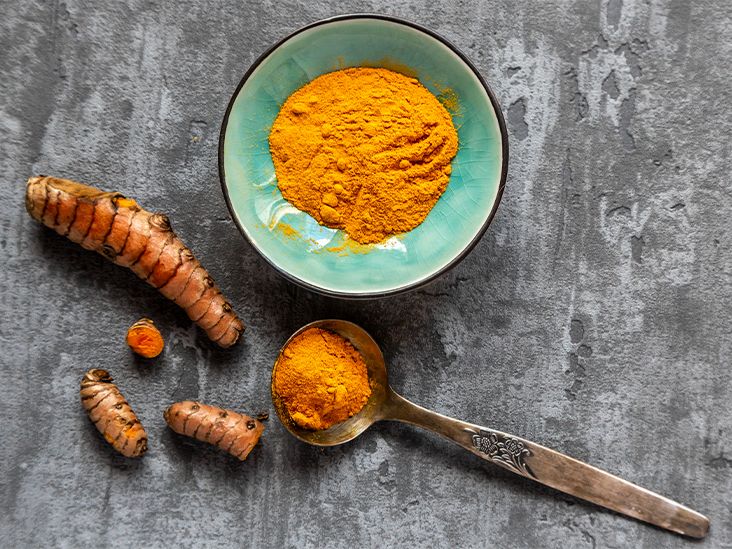 Turmeric has been used for centuries for its culinary and medicinal properties. Listed below are several benefits and applications of turmeric.
Turmeric has been used for centuries for its culinary and medicinal properties. Listed below are several benefits and applications of turmeric.
Benefits:
- Possesses potent antioxidant and anti-inflammatory characteristics.
- It improves joint health and alleviates symptoms of arthritis.
- It supports brain health and reduces the risk of neurodegenerative ailments.
- Enhances immune function.
- It assists digestion and alleviates irritable bowel syndrome (IBS) symptoms.
- It lowers cholesterol levels and enhances cardiovascular health.
- It may aid in reducing the risk of cancer.
- It contains properties that promote skin and wound healing.
Uses:
– Culinary use: Incorporate turmeric powder into dishes.
– Tea: Brew turmeric powder in hot water.
– Supplements: Available in capsules, tablets, or powder.
– Topical application: Apply turmeric paste or oil to the skin for anti-inflammatory benefits.
Types:
– Indian Turmeric (Curcuma longa)
– Chinese Turmeric (Curcuma phaeocaulis)
– Javanese Turmeric (Curcuma xanthorrhiza)
– Turmeric Oil (Curcuma longa)
Echinacea

Echinacea, also called coneflower, is a flowering plant indigenous to North America and has been utilised in traditional medicine for many years to promote overall health and boost immune function. The following are some benefits and applications of echinacea:
Benefits:
Supports the functioning of the immune system
Diminishes the severity and duration of colds and flu
Exhibits antiviral and antibacterial characteristics
Possesses anti-inflammatory properties
Elevates levels of antioxidants
It may alleviate anxiety and stress
Could enhance cognitive function
Uses:
– Supplements: Encapsulated, in tablet form, or as a powder
– Tea: Brew dried echinacea flowers or roots in hot water
– Tincture: Administer echinacea tincture sublingually or mix with water
– Topical: Use echinacea cream or ointment for skin application to aid in wound healing
Types:
– Echinacea Angustifolia (Narrow-leaf coneflower)
– Echinacea purpurea (Purple coneflower)
– Echinacea pallida (Pale purple coneflower)
– Echinacea paradoxa (Yellow coneflower)
Sage
:max_bytes(150000):strip_icc()/growing-sage-1402599-12-275432c21c2b46a0b3d639dda404011e.jpg)
Sage, a herbaceous plant, is widely recognised for its culinary and medicinal applications. The following are some of the benefits and uses of sage:
Benefits:
- Enhances cognitive function and memory
- It supports brain health and reduces the risk of neurodegenerative diseases
- Possesses antioxidant and anti-inflammatory properties
- Boosts immune function
- It may enhance digestion and alleviate symptoms of irritable bowel syndrome (IBS)
- It might alleviate menopausal symptoms and restore hormone balance
- Promotes oral health and reduces the risk of gum disease
- It may improve skin health and diminish signs of aging
Uses:
– Culinary: Incorporate fresh or dried sage leaves into dishes
– Tea: Infuse dried sage leaves in hot water
– Supplements: Available in capsules, tablets, or powder form
– Topical: Apply sage essential oil to the skin or use in skincare products
Types:
– Common Sage (Salvia officinalis)
– Purple Sage (Salvia officinalis ‘Purpurascens’)
– Red Sage (Salvia coccinea)
– Greek Sage (Salvia fruticosa)
Yarrow
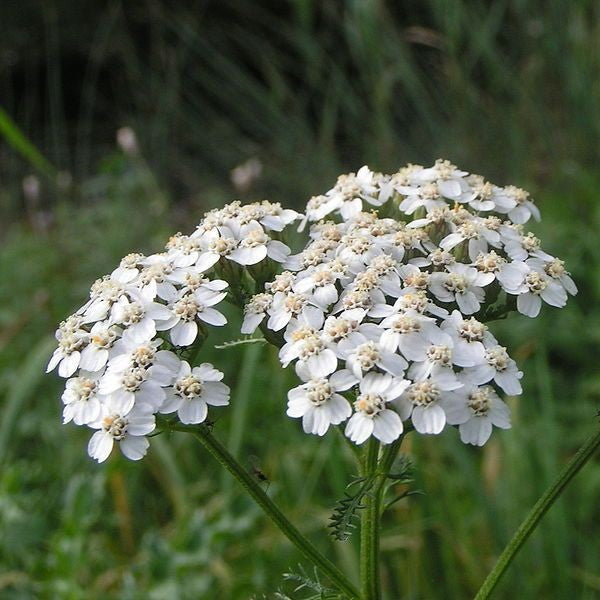
Yarrow, a flowering plant with a rich history in herbal medicine, offers several benefits and applications:
Benefits:
- Diminishes swelling and enhances the healing of wounds
- Halts bleeding and aids in blood clotting
- Supports gastrointestinal health and alleviates symptoms of irritable bowel syndrome (IBS)
- Lowers fever and eases symptoms of colds and flu
- Boosts immune function and reduces the likelihood of illness\Possesses antiseptic and antifungal properties
- It may alleviate anxiety and stress
- It might enhance skin health and diminish signs of aging
Uses:
– Tea: Infuse dried yarrow flowers in hot water
– Tincture: Take yarrow tincture sublingually or mix it with water
– Topical: Apply yarrow salve or ointment to the skin for wound healing
– Supplements: Capsules or powder
Types:
– Common Yarrow (Achillea millefolium)
– Golden Yarrow (Achillea filipendulina)
– Silver Yarrow (Achillea ‘Moonshine’)
Reishi Mushroom

Reishi mushroom, or Ganoderma lucidum, is a fungi highly valued for its medical benefits. Below are some advantages and applications of Reishi mushroom:
Benefits:
- Enhances the functioning of the immune system
- Reduces stress and anxiety levels
- Facilitates relaxation and enhances the quality of sleep
- Possesses antioxidant and anti-inflammatory characteristics
- May contribute to better cardiovascular health
- Possibly reduces the risk of cancer
- Supports the health of the liver and kidneys
- It may enhance cognitive function and memory
Uses:
– Supplements: Capsules, tablets, or powder
– Tea: Soak dried Reishi mushroom in hot water
– Tincture: Consume Reishi mushroom tincture sublingually or mix it with water
– Topical: Apply Reishi mushroom extract on the skin for anti-aging benefits
Types:
– Red Reishi (Ganoderma lucidum)
– Black Reishi (Ganoderma sinense)
– Purple Reishi (Ganoderma purpureum)
Conclusion
In summary, herbs are natural and effective means to boost immunity function and maintain health. Incorporating these robust plants into our daily lives allows us to take charge of our well-being and lower our risk of illness. Herbs offer a straightforward and effective means to enhance our defences, whether utilised in teas, supplements, or culinary applications. Why not begin your journey into the realm of herbal immunity today? Herbs enhance any health and wellness regimen with their deep-rooted history, scientific support, and inherent advantages. Get the inside scoop on how to boost immunity, reduce inflammation, and optimise your body’s natural defences with these herbs.
FAQs
Q: Can herbs prevent illness?
A: Although herbs cannot promise complete prevention, they can lower the chances of illness by bolstering immune function.
Q: Are herbal remedies safe?
A: The majority of herbal remedies are safe when used correctly. However, seeking advice from a healthcare professional before using new herbs is essential, particularly if you have existing health conditions or are taking medications.
Q: Can herbs interact with medications?
A: Indeed, herbs can interact with medications. It’s crucial to consult with a healthcare professional before using herbs if you are taking prescription medications.
Q: How can I use herbs to boost immunity?
A: Herbs can be ingested as teas, supplements, or added to food. For guidance, seek personalised advice from a healthcare professional.

